Medical doctors and mental health professionals go on camera, on the record, for the record, for a discussion, analysis, and science-based examination of the behavior, psyche, condition, and stability of President Donald Trump. Also examines Trump's effect on our citizenry, culture, and institutions.
Related Movies
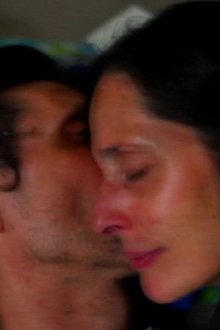
Perfecting the Art of Longing (2021)
Cut off from his loved ones due to the strict COVID-19 lockdown at the long-term care facility where he lives, a quadriplegic rabbi is filmed by his daughter while reflecting on love, mortality and longing.
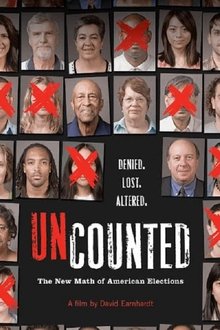
Uncounted (2008)
UNCOUNTED exposes how the election fraud that altered the outcome of the 2004 election led to even greater fraud in 2006 and now looms as an unbridled threat to the outcome of the 2008 election. The controversial film examines in factual, logical, and yet startling terms how easy it is to change election outcomes and undermine election integrity across the U.S. Beyond increasing the public's awareness, UNCOUNTED inspires greater citizen involvement in fixing a broken electoral system.

The genetic epistemology of Jean Piaget (1977)
A self-potrait of the influent Swiss psychologist Jean Piaget.

Sassnitz vs. Trump: The Dispute Over Nord Stream 2 (2020)
Sassnitz is a small coastal town at the Baltic Sea on the Island of Rügen. In its vicinity are the world-famous chalk cliffs, a tourist magnet. The Mukran Port is also part of the municipality. The overseas port is the starting point for the construction of Nord Stream 2, a natural gas pipeline that connects Germany directly with Russia. In 2020, the port town hit the international headlines. Even the New York Times reported and cited Mayor Frank Kracht as a staunch opponent from the northeast German province against the rumbling America of Donald Trump. The reason is the undisguised threat from Washington to ruin the international port economically if the natural gas pipeline continues to be built from there. Many jobs and the region's economic stability are at risk. Reporter Klaus Scherer documents the case, questions experts as well as those affected and looks at the behavior of national politicians towards the USA and how they react to the interference in internal affairs.

Ronald Reagan: His Winning Wit (2020)
From actor to governor of California to our 40th president. Ronald "Dutch" Reagan used his wit and charisma to win the hearts and minds of millions of Americans. His skill as an orator earned him the title of "the great communicator". In this Newsmax TV exclusive narrated by his son Michael Reagan. you'll revisit some of the beloved former president's funniest and greatest moments. See how he advanced conservative conservative policies designed to stimulate growth. Curb inflation. strengthen national defense, and end the Cold War - all while remaining calm under pressure. President for just 69 days, he faced his first crisis - being shot. Despite nearly dying, he joked with his wife. "Honey, I forgot to duck".
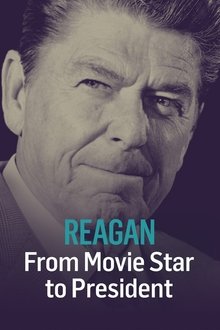
Reagan: From Movie Star to President (2016)
Drawing from the recent book, Reagan: The Life by best-selling biographer H.W. Brands, this Ronald Reagan biography dives deep into the pivotal events that shaped his life. Dramatic recreations reveal the untold, behind-the-scenes moments that shaped the trajectory of his career. Interviews and rare archival material illustrate his life through the Great Depression, WWII, Hollywood’s Golden Age, The Cold War, an assassination attempt (not unlike Bill O’Reilly’s book and recent Nat Geo movie, Killing Reagan), and public and personal heartache.

#Trumpsplaining vol. 1 (2019)
a movie about Donald Trump, Martian technopolitical fictions, Facebook/Youtube algorithmic rabbit holes, white male online radicalization & prank-pretended memetic warfare.
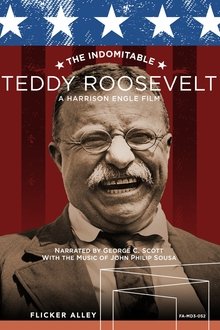
The Indomitable Teddy Roosevelt (1983)
Theodore Roosevelt was America's 26th president and a larger-than-life legend whose incredible story must be seen to be believed. Narrated by George C. Scott, this documentary weaves extremely rare archival footage with meticulous recreations alongside the music of John Philip Sousa in a dynamic panorama of the great events of Teddy Roosevelt in the early years of the 20th century.

Sniper - Bulletproof (2011)
SNIPERS: BULLETPROOF deconstructs and analyzes the little known sniper events that have occurred when no other course of action was possible. The people who planned the takedowns, or pulled the trigger, share their techniques and bring to light the many factors that had to be considered in each mission: terrain, wind speed, temperature, elevation changes... all are critical to taking out targets considered bulletproof. A sniper has one chance, one breath, to rise to the occasion and save the day... if they miss, there may never be another opportunity. As these never told before stories unfold, the viewer also learns about the high tech gear each sniper carries on their classified missions.
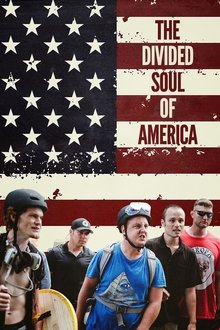
The Divided Soul of America (2019)
Under the Trump administration, USA is a deeply divided country. One side feeds populism and religious rectitude in a monochromatic landscape, painted white, lamenting for a past that never will return. The other side fuels diversity and multiculturalism, a biased vision of a progressive future, quite unlikely. Both sides are constantly confronted, without listening to each other. Only a few reasonable people gather to change this potentially dangerous situation.

Trump's Unlikely Superfans (2016)
Ahead of the U.S. Presidential Elections, Angela Scanlon travels across America to meet some of Donald Trump's most unlikely supporters - including a second-generation Mexican American who wants Trump to build that wall.

Dateline: Saigon (2017)
How does a nation slip into war? Dateline-Saigon profiles the controversial reporting of five Pulitzer Prize-winning journalists -The New York Times' David Halberstam, the Associated Press' Malcolm Browne, Peter Arnett, and legendary photojournalist Horst Faas, and UPI's Neil Sheehan -- during the early years of the Vietnam War as President John F. Kennedy is secretly committing US troops to what is initially dismissed by some as 'a nice little war in a land of tigers and elephants.' 'When the government is telling the truth, reporters become a relatively unimportant conduit to what is happening,' Halberstam tells us. 'But when the government doesn't tell the truth, begins to twist the truth, hide the truth, then the journalist becomes involuntarily infinitely more important.'
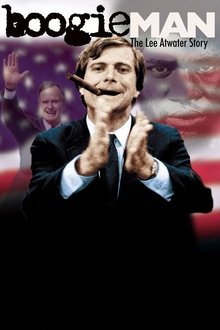
Boogie Man: The Lee Atwater Story (2008)
Boogie Man is a comprehensive look at political strategist, racist, and former Republican National Convention Committee chairman, Lee Atwater, who reinvigorated the Republican Party’s Southern Strategy to increase political support among white voters in the South by appealing to racism against African Americans. He mentored Karl Rove and George W. Bush and played a key role in the elections of Reagan and George H.W. Bush.

Dixie Chicks: Shut Up and Sing (2006)
Shut Up and Sing is a documentary about the country band from Texas called the Dixie Chicks and how one tiny comment against President Bush dropped their number one hit off the charts and caused fans to hate them, destroy their CD’s, and protest at their concerts. A film about freedom of speech gone out of control and the three girls lives that were forever changed by a small anti-Bush comment
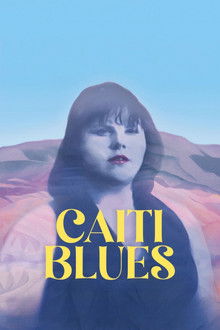
Caiti Blues (2023)
Caiti Lord had always dreamt of being a singer. A born-and-bred New Yorker, she studied at the best music schools and performed on Broadway. Her future was sparkling bright . . . But today, the only thing that glitters is the snow that falls on the desert. Self-exiled in Madrid, New Mexico, far from the glitz and glamour of the Big Apple, Caiti’s looking for a way forward. In this former ghost town, surrounded by mountains and old hippies, between her day job slinging drinks to tourists and the sleepless festive nights, her life is slipping by. That’s the story she tells each day on her radio show. As the United States sinks into madness and the world turns terrifyingly absurd, Caiti feels increasingly suffocated. She’s about to turn 30 and her future has never felt so uncertain. How can she find her way back to a place of meaning and self-expression?

Obama: Building the Dream (2020)
He was elected as the 44th President of the United States simply for being Obama: voters, tired of what America had become, responded to his persona, his message and what he embodied - hope. Obama was in many ways a mirror, a mirror in which millions of Americans saw reflected their personal ideals: ideals of justice, tolerance and equality. After spending two tumultuous terms in office, through a period of geopolitical upheaval and economic crisis, it is easy to forget how the young president captivated the world simply by being 'Obama'.

Primary (1960)
Primary is a documentary film about the primary elections between John F. Kennedy and Hubert Humphrey in 1960. Primary is the first documentary to use light equipment in order to follow their subjects in a more intimate filmmaking style. This unconventional way of filming created a new look for documentary films where the camera’s lens was right in the middle of what ever drama was occurring. Preserved by the Academy Film Archive in partnership with The Film Foundation in 1998.
